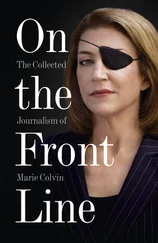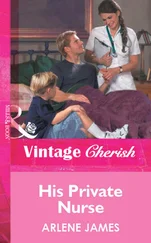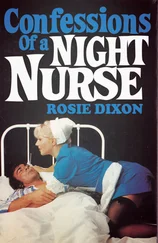His accommodation, though sparse, was comfortable enough, and, recently, he had purchased a new mirror to go above the sink – well, the one that had been there for ages had yellowed so that he could barely see himself. But this replacement was bigger and longer, so that when he took a few steps back he could see much more of his appearance.
The priest was tall and spare-framed, his dark hair brushed away from a prominent forehead. But it was his black, glittering eyes and well-defined eyebrows that immediately caught the attention. He gazed back at himself with a certain amount of pride – one of the seven deadly sins, true, but it wasn’t his fault that he was good-looking. If only fate – or rather his father – had allowed him to pursue another career, Laurence Dunn was certain that his name would be known to thousands, thousands. He would be famous, adored, respected.
He stood back, struck a pose, and raised his arm in a sweeping gesture.
‘Friends, Romans, countrymen, lend me your ears! I come to bury Caesar, not to praise him!’ he announced to the stone walls of his room. This was one of the speeches in a Shakespeare play that he never tired of, and he could complete it right to the end. And sometimes, if feeling melancholy, he enjoyed curling his tongue around other of the Bard’s immortal words. ‘No matter where, of comfort no man speak, let’s talk of graves, of worms, of epitaphs .’ The final word was pronounced with a menacing growl.
Laurence Dunn was entranced with the theatre and went to as many performances as time and money allowed. The stage, the smell, the atmosphere – the escape! He could have been one of those extraordinary players, those masters of the art! He could, he knew he could!
He completed the speech – which took quite a long time – and bowed to the silent applause, taking several curtain calls. Then he felt cross with himself for indulging in this regular exercise because it didn’t help. He had been planted in the priesthood and that would be that until he died. He was 45 years old and surely mature enough to accept what could not be changed, but he just wished he could rid himself of the cancerous envy he felt about his brother. Envy, another of those seven deadly sins …
Ernest was the younger by three years and had been allowed to do what he liked with his life. Their father, also a priest and of very high esteem, had been a domineering man and had commanded Laurence to follow him in Holy Orders, while Ernest had been allowed to look around and try one thing after another. For a very short time he had dabbled in the law, and even tried his hand at military service – though that didn’t last, much too uncomfortable – and in the end Reverend Dunn senior gave up on his younger son and retired to his study to dwell on higher things. Which was all very well, but how had Ernest managed to survive all these years without a proper job? He lived in the West End in a rather nice house by all accounts, though Laurence had never been there, and on the odd occasion that the two brothers met up, Ernest seemed quite well-to-do. Smartly dressed, he always insisted on paying for their meal or their drinks, which was something. Laurence didn’t like to ask where Ernest got his money from, but he had a good idea. Gambling. It was the only explanation, especially as once he’d said to Laurence, ‘You backed the wrong horse, old boy.’
Now, Laurence checked once more on his appearance, and prepared to go over to the orphanage for breakfast. He enjoyed breakfast – well, he enjoyed everything which Mrs Haines produced – and after that he would be there to give God’s blessing to two little girls who were leaving today.
*
Emma Kingston was not feeling at all well. She had slept badly and had woken with a headache. Why today, of all days – but perhaps it was the significance of the day which was causing her upset.
Angelina Green, their little throw-out orphan, was leaving the Garfield for the last time. Of all the children who had been part of her life, the superintendent was already feeling an acute sense of loss, because however much you spoke of coming back and of keeping in touch, she knew this was the parting of the ways, the end. It was the natural sequence of events, but each time it felt like a small bereavement.
She scolded herself at her thoughts. The young girl was more than ready to face the world and was longing to strike out on her own, taking Ruby with her. As it happened, their departure had been postponed by a few months because the room that had been found for them hadn’t been ready. But now, after a few goodbyes to their friends, they would be making their way to their new home. When it was time for any of the orphans to leave, nothing special was made of the occasion except that Father Laurence always joined them for breakfast, and to give them a blessing to send them on their way. And on the final evening, Vera Haines always made cakes for tea, ensuring that there were enough left to make a small parcel for the departing children to take away with them.
Emma Kingston got dressed, took two more of her tablets, and sat down heavily on the bed. It was no good, this migraine was not going to leave her until much later – or even until tomorrow. For the first time in many years she would not be accompanying the children as they left. Someone else would have to do it – but not Mrs Marshall, the superintendent decided at once, even though the woman had done this twice before. No. The name that immediately sprang to mind was Maria Jones. She had a gentle way with the children and seemed especially fond of little Ruby.
*
In their warm coats and hats, and each carrying a suitcase containing their clothes and few belongings, Angelina and Ruby made their way along the street towards the bus stop, with Maria Jones walking alongside, also carrying a suitcase that held sheets and pillows and towels. She smiled down at them.
‘What an exciting day this is for you!’ she exclaimed. ‘A new beginning!’
‘I can’t wait to see where we’re going to be living!’ Angelina exclaimed. ‘Miss Kingston told me that it is very nice, and only a bus ride away from the orphanage, She said that she will be coming to see us as soon as she’s better.’
‘And you will be able to come and see us, won’t you?’ Maria Jones said. ‘You must tell us what you’re doing, and how you are getting on as working girls!’
Ruby, who’d been rather quiet, spoke up. ‘I hope I shall know what to do at the salon,’ she said, ‘and that I don’t knock things over and get in the way,’’
‘Ruby!’ Angelina said firmly. ‘Don’t be a silly billy! Of course you won’t! People will love you because you are careful and quiet and ready to do anything asked of you. It will be interesting , Ruby, and you will meet all sorts of different people.’
Ruby was going to be an assistant at a small, local hairdresser’s salon, sweeping up and keeping things tidy for the manager and making tea for clients waiting under the huge machines for their hair to dry. Luckily, the place was quite near the small hotel where Angelina was to be employed as a general domestic help. Their combined wages would be just a few shillings, but enough to pay the rent for their room in the three-storey house, and for their food – if they were careful. Emma Kingston always took great trouble to see that her children would be as comfortable as possible in their new lives, and, fortunately, Garfield orphans were usually easy to place. People trusted the Garfield. This could be partly due, the superintendent sometimes thought, to Father Laurence’s dramatic exhortations regarding bad behaviour and its consequences. She smiled inwardly. She knew that Mrs Marshall had no time for the man at all, and had several times intimated that she knew something suspicious about him. Oh yes, you wouldn’t believe it, not from a man of the Cloth. But since Emma Kingston never indulged in any discussion or gossip about her staff or anyone connected with the orphanage, Mrs Marshall’s secret remained just that. A secret.
Читать дальше












